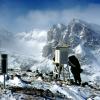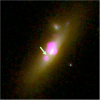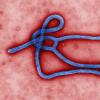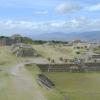Science & Technology
 <p>The United States could slash greenhouse gas emissions from power production by up to 78 percent below 1990 levels within 15 years while meeting increased demand, according to a new study by NOAA and University of Colorado Boulder researchers.</p>
<p>The United States could slash greenhouse gas emissions from power production by up to 78 percent below 1990 levels within 15 years while meeting increased demand, according to a new study by NOAA and University of Colorado Boulder researchers.</p> <p>In the ever-escalating evolutionary battle with drug-resistant bacteria, humans may soon have a leg up thanks to adaptive, light-activated nanotherapy developed by researchers at the University of Colorado Boulder.</p>
<p>In the ever-escalating evolutionary battle with drug-resistant bacteria, humans may soon have a leg up thanks to adaptive, light-activated nanotherapy developed by researchers at the University of Colorado Boulder.</p>
<p>Antibiotic-resistant bacteria such as Salmonella, E. Coli and Staphylococcus infect some 2 million people and kill at least 23,000 people in the United States each year. Efforts to thwart these so-called “superbugs” have consistently fallen short due to the bacteria’s ability to rapidly adapt and develop immunity to common antibiotics such as penicillin. </p> <p>Pregnant and postpartum women at risk of depression are less likely to suffer depression when they meditate or get in a yoga pose than when they are treated with psychotherapy or antidepressants, a new study led by University of Colorado Boulder researchers has found.</p>
<p>Pregnant and postpartum women at risk of depression are less likely to suffer depression when they meditate or get in a yoga pose than when they are treated with psychotherapy or antidepressants, a new study led by University of Colorado Boulder researchers has found.</p> <p>New research led by the University of Colorado Boulder indicates an ongoing loss of ice on Niwot Ridge and the adjacent Green Lakes Valley in the high mountains west of Boulder is likely to progress as the climate continues to warm.</p>
<p>New research led by the University of Colorado Boulder indicates an ongoing loss of ice on Niwot Ridge and the adjacent Green Lakes Valley in the high mountains west of Boulder is likely to progress as the climate continues to warm.</p> <p>An unusually star-deprived black hole at the site of two merged galaxies could provide new insight into black hole evolution and behavior.</p>
<p>An unusually star-deprived black hole at the site of two merged galaxies could provide new insight into black hole evolution and behavior.</p> <p>The human gut harbors a teeming menagerie of over 100 trillion microorganisms and exercising early in life can alter that microbial community for the better, promoting healthier brain and metabolic activity over the course of a lifetime.</p>
<p>The human gut harbors a teeming menagerie of over 100 trillion microorganisms and exercising early in life can alter that microbial community for the better, promoting healthier brain and metabolic activity over the course of a lifetime.</p> <p>Water managers in Colorado and the West scrambling to meet the growing demand for increasingly scarce water supplies caused by large populations far from water resources, climate change and drought need to focus more effort on conserving water, including addressing reservoir evaporation, say University of Colorado Boulder researchers.</p>
<p>Water managers in Colorado and the West scrambling to meet the growing demand for increasingly scarce water supplies caused by large populations far from water resources, climate change and drought need to focus more effort on conserving water, including addressing reservoir evaporation, say University of Colorado Boulder researchers.</p> <p>Researchers have developed a groundbreaking microprocessor chip that uses light, rather than electricity, to transfer data at rapid speeds while consuming minute amounts of energy. </p>
<p>Researchers have developed a groundbreaking microprocessor chip that uses light, rather than electricity, to transfer data at rapid speeds while consuming minute amounts of energy. </p> <p>The Ebola virus and fruit bats have been waging a molecular battle for survival that may have started at least 25 million years ago.</p>
<p>The Ebola virus and fruit bats have been waging a molecular battle for survival that may have started at least 25 million years ago.</p> <p class="p1"><span class="s1">Humans haven’t learned much in 2,000 years when it comes to religion and politics. </span>Religion has led to social tension and conflict, not just in today’s society, but dating back to 700 B.C., according to a new study published today in <i>Current Anthropology</i>.</p>
<p class="p1"><span class="s1">Humans haven’t learned much in 2,000 years when it comes to religion and politics. </span>Religion has led to social tension and conflict, not just in today’s society, but dating back to 700 B.C., according to a new study published today in <i>Current Anthropology</i>.</p>


